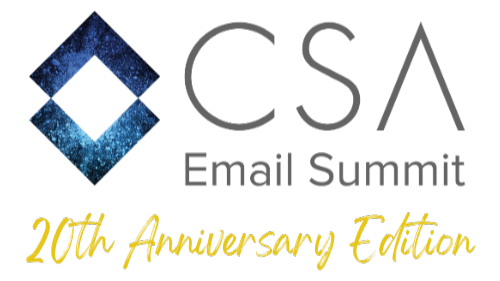CSA Digital Email Summit 2020
Legal Insights Vol. 3 – Opt-Out Notices and Imprint
Legal Insights Vol. 3 – Opt-Out Notices and Imprint
The Small Print – The Importance of Opt-out Notices and Imprints in Marketing Emails
The third in the series of webinars and workshops offered as part of the 2020 CSA Digital Email Summit took place online on 14 September 2020. The series of workshop on legal issues deals with the legal requirements for email marketing. The requirements of the GDPR and the e-Privacy Directive are presented in a practical manner and with reference to issues that have arisen in the context of certification and complaint procedures. Alexandra Koch-Skiba and Sebastian Fitting of the eco Complaints Office, and the CSA’s Astrid Braken took the attendees through legal issues related to opt-out notices and imprints in the context of email marketing.
There are different requirements related to opt-out notices when the permission is based on a customer relationship. An opt-out notice must be provided both when collecting data and when using said data. What is specific to the customer relationship scenario is that a certain wording must be used in the notice:
“without incurring costs other than transmission costs at base tariffs”.
This is required by the ePrivacy Directive and is backed up by court decisions. Saying you can opt out for free or at no cost is not sufficient. This wording is not required for emails that are sent based on consent, however it does no harm and covers all bases.
A double opt-out is something brands ask for as they are worried about accidental opt-outs, e.g. when a newsletter is forwarded and the new recipient opts out and unsubscribes the original subscriber. However, while a double opt-in is highly recommended, a double opt-out is most definitely not. not illegal in all cases, customers are often annoyed to receive a second email asking them to confirm their opt-out and just mark the email as spam. This ends up impacting on the sender’s reputation.
Another request from brands is to use a “confirmed opt-opt”, sometimes combined with information on the option to re-subscribe. However, depending on the formulation, this might be interpreted as advertising and is therefore prohibited. Even if the formulation is neutral enough to not be considered advertising, it may still irritate recipients and end up being marked as spam with the knock-on effect on reputation.
Note that the opt-out must be implemented after five working days at the latest, according to the CSA Rules.
Imprint (or legal notice, footer, Impressum…)
Around a sixth (16%) of the violations of the CSA’s legal requirements in 2019 complaints cases are related to imprints, so the legal information provided at the end of an email identifying the sender.
The purpose of an imprint to make the relevant entity (legally) identifiable. Usually, the following details are required:
- Legal structure / „company type“ with relevant registry entries
- Contact details including the physical address and – most importantly – an email address and a valid phone number or link to an electronic contact form
- Sales tax ID number etc., if applicable in your country
The full text must be provided and not just linked to. The information must be easy to find and be easily recognisable as the imprint.
The further contents of the imprint are dictated by local law, not by the CSA, as the local legal requirements differ from country to country. For example, German law requires that the business’ commercial registration number be included in imprints (Impressum). Other jurisdictions may not require this. The CSA recommendations for imprints consider the most common requirements worldwide. Make sure that you include all elements required by your own jurisdiction.
Here is an example of eco’s imprint (which is fully compliant with German law):
eco – Association of the Internet Industry
Lichtstrasse 43h, 50825 Cologne, Germany
Email: info@eco.de
Tel: +49 221 – 70 00 48-0
Association Registered in Cologne, Germany – Reg. Nr. 14478
Value Added Tax Number: VAT-ID: DE 182676944
Executive board: Oliver Süme (Chair), Klaus Landefeld (Vice-Chair), Felix Höger, Prof. Dr. Norbert Pohlmann
CEO: Harald A. Summa
Managing Director: Alexander Rabe
To find out more about other legal aspects of marketing emails, read the reports of the first two workshops in the series:

